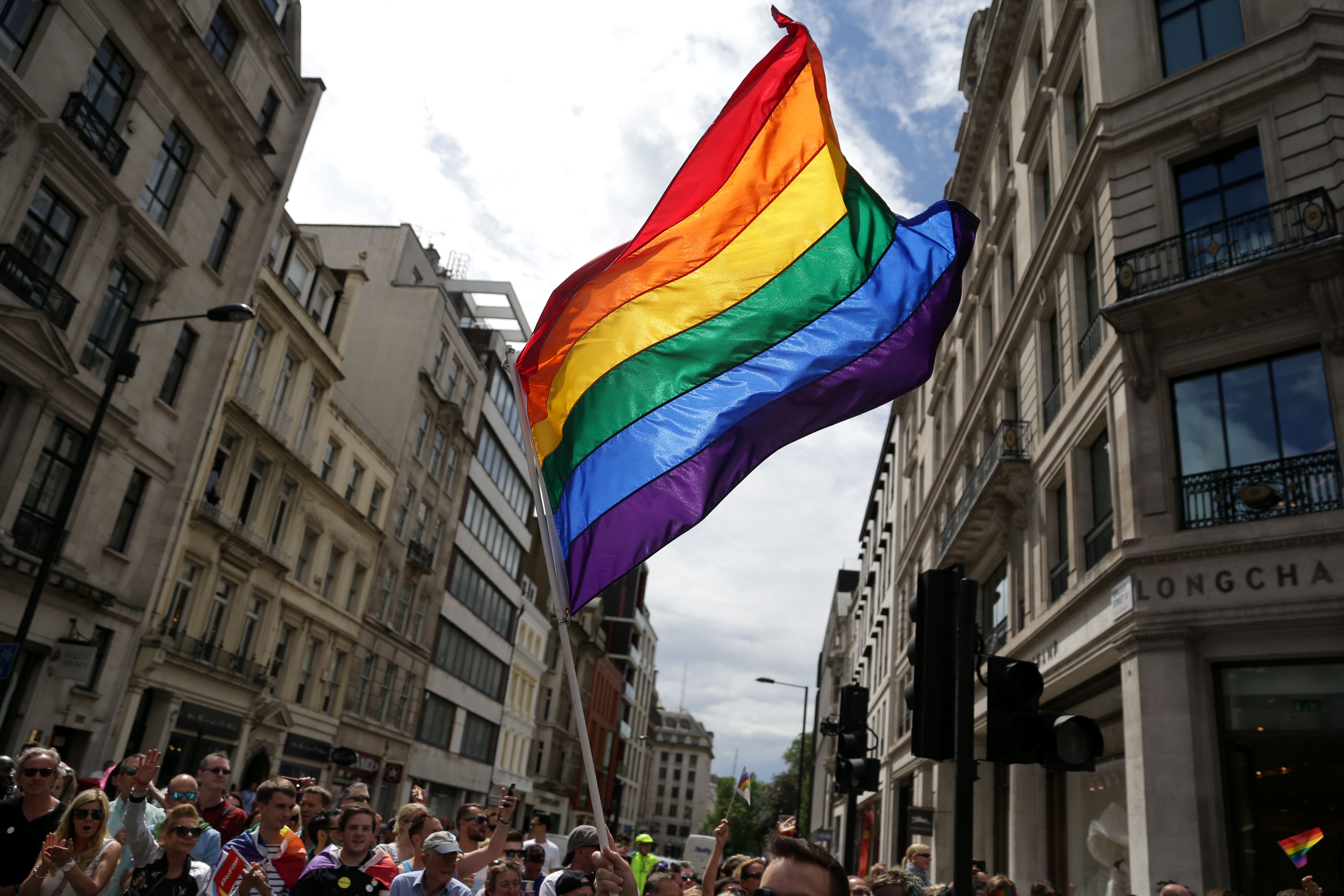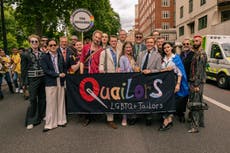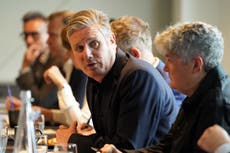This Pride, remember the queer pioneers who fought for our freedoms
The civil rights I enjoy as I turn 40 were not guaranteed when I was born, writes Oliver Hermanus


I experienced my first proper London Pride last year. I got swept up in the thrum of Soho streets, packed with revellers, swaying from bar to bar, drink in hand.
I danced the night away in a mess of glitter and gay pop anthems. It was freeing, it was easy and familiar. Perhaps so much so that I might easily have believed that Pride was now simply an annual event that meant little more than that – a good night out, being free.
I recently turned 40 and found myself reflecting on my various privileges. It felt like the right time to take stock. I’m a coloured (google it) South African filmmaker, born during apartheid, gay and living in London.
A big part of my life has been about access to freedom. Freedom of choice, of movement and agency. Freedom to love whomever I choose. Freedom that was fought for by my parents because the civil rights I enjoy as I turn 40 were not guaranteed when I was born.
In 2019 I made a film set in the year 1983, the year of my birth. That film, Moffie, tells the story of a white youth, a closeted teen, conscripted to the apartheid army at the height of the Angolan war. The film details his two years of military service and the shame that envelops him and his fellow conscripts. The title, “moffie”, is an Afrikaans slur. Its English cousin is the word “f****t”. I co-wrote the film based on a book of the same name, because I was drawn to the theme of shame and its role in shaping queer people of my generation.
In making the film, I interrogated my own shame – that of a young boy growing up in South Africa where toxic masculinity has reigned supreme for centuries. I reflected on my own experience of the word “moffie”, and found myself asking friends to recall their memory of the first time that word was weaponised against them. When it was used in an attempt to shame them into changing their behaviour, into creating a false self – a constructed person who moved and spoke like all the other boys. All in the hope of fitting in as best we could so as to be accepted and on our way to being the “man” we were all being told we had to become, and not the “moffie” we knew we were.
As Pride month comes to an end and I tip into my forties, I realise that so much has changed for me, yet so little has changed for most. My sexuality, my freedoms, would be denied to me if I lived in Uganda. If Nelson Mandela was not freed, I might still be living a life subject to a racist regime, diminished and disregarded. My desire to make films would be denied. The stories I have told would have seen me incriminated, vilified and imprisoned. For the most part, the man I am at this moment would simply not exist.
My reflections reminded me that I am the product of a freedom that is not universal; that is not guaranteed to all who are like me. I am conscious, I am aware, I am present in the knowledge that my night of frivolous fun in Soho, London, does very little to expel the shame that rules the lives of my LGBT+ community in places even closer to my home.
By living my life as I choose, by expressing myself through film without fear of persecution, I am enjoying the privileges afforded to me by all the queer pioneers who have come before – those who decided to celebrate their pride in who they were, a fearless retaliation against the shame hurled at them since birth.
My only hope is that any queer person, living their lives in places where shame still dominates, sees my work. I want them to hear my voice and know that there is a place of love and acceptance – of safety – that will not cease to glow ever so brightly on the horizon. Hopefully, soon a day will come when they too can be afforded the freedom to dance the night away like anyone else and celebrate who they are, with pride.
Oliver Hermanus is a South African film director and writer
Join our commenting forum
Join thought-provoking conversations, follow other Independent readers and see their replies
Comments


Bookmark popover
Removed from bookmarks